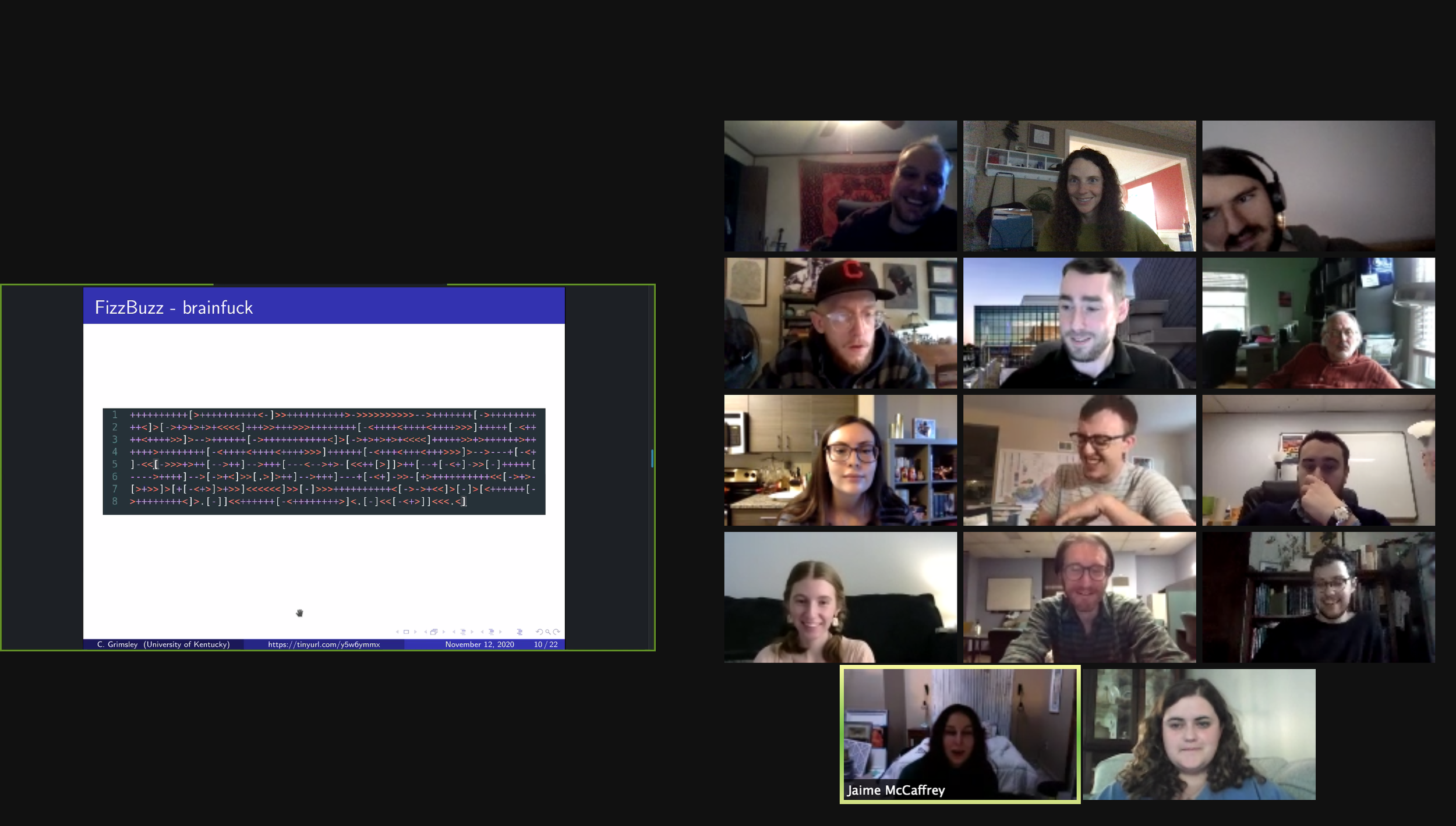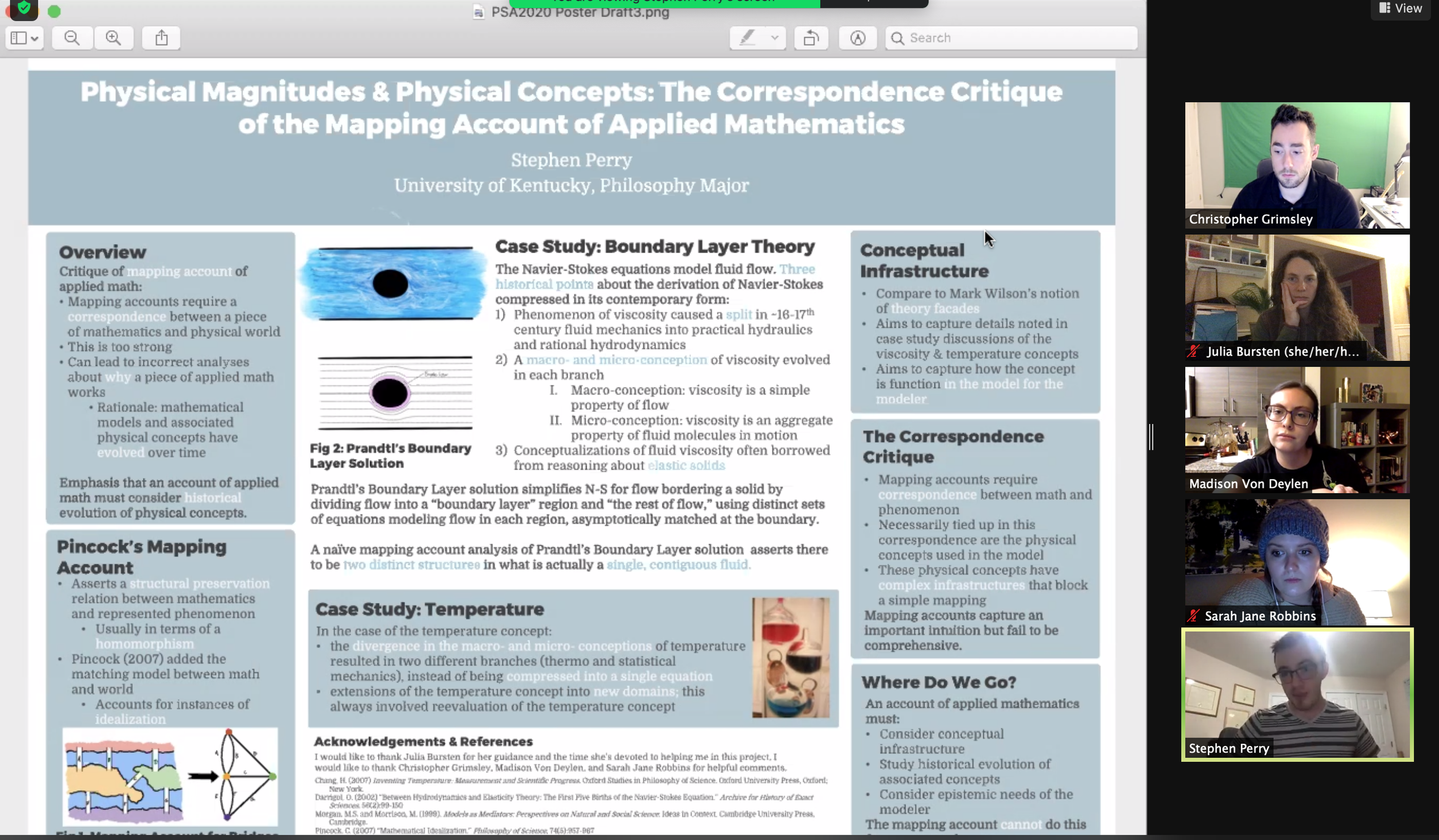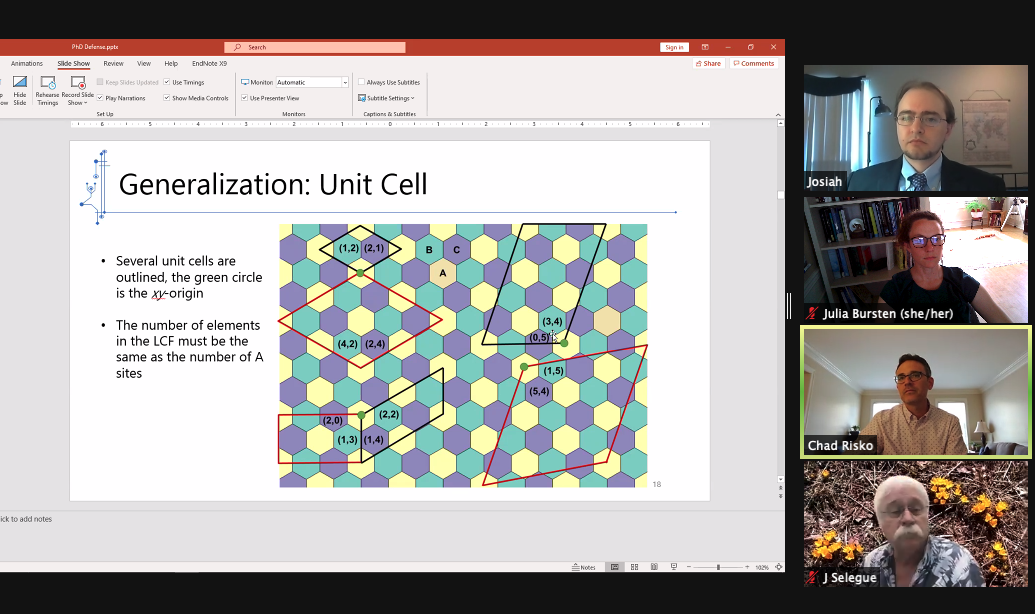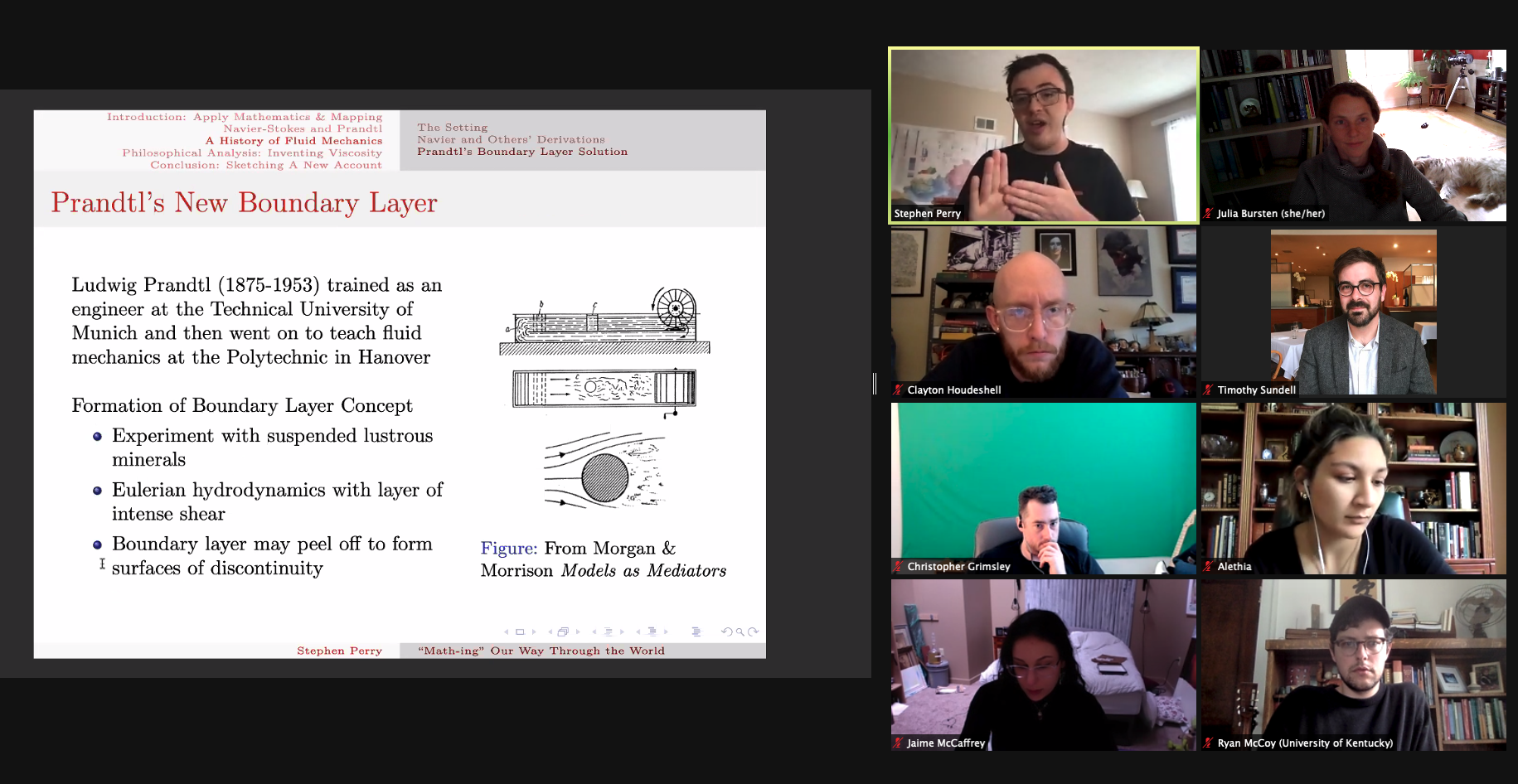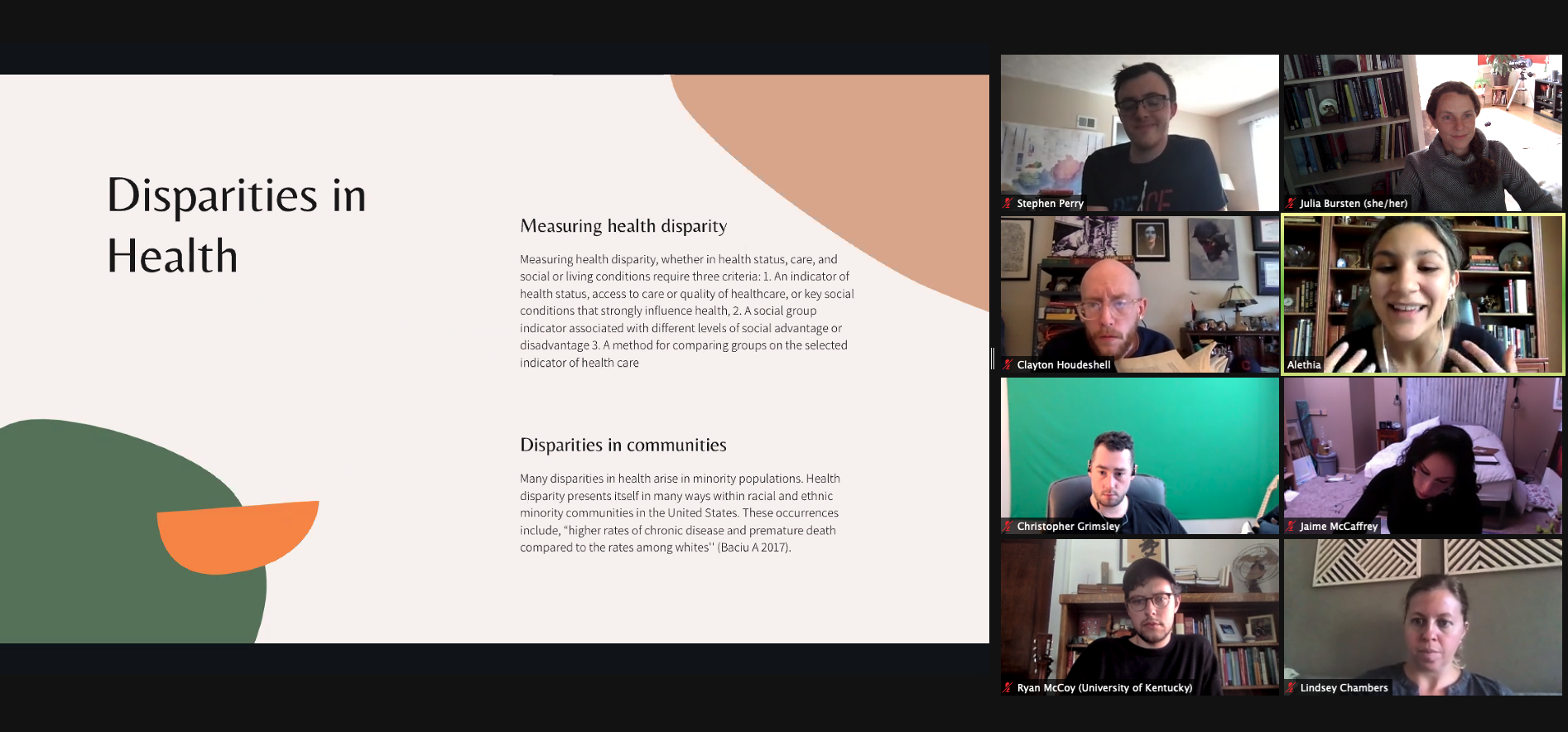Bursten Research Group
The Bursten and Others Research Group (BORG) specializes in philosophy of science with an ear to the ground. We involve scientists in the development of philosophical examinations of scientific practices, and we draw our research questions from open and active problems in scientific research. We focus on synthetic and applied sciences, where a complex variety of scientific and extra-scientific factors influence the aims of research. We use this approach to develop new areas of research for the philosophy of science, as well as to articulate rigorous and innovative responses to a variety of classical problems, including classification, explanation, and inter-theory relations.
BORG is closed to new students for 2022–2023 while Julia is on sabbatical, but will be accepting new undergraduate, graduate, and postdoctoral researchers beginning in fall 2023. Please e-mail Julia if you are interested in becoming involved.
Current Projects
Agricultural Extension
Agricultural science is an inherently applied set of scientific practices, and it exists at interface between science and society that cannot be elucidated by studying other parts of scientific practice. Drawing from history, philosophy, and science and technology studies, we explore agricultural extension as a socially situated knowledge-construction activity. This project includes new fieldwork methods and undertakes a survey of agricultural extension work at 13 colleges and universities around the country. We aim to expand, recast, and critique contemporary accounts of institutional and sociopolitical influences on scientific practice from a variety of disciplinary perspectives.
Synthetic Sciences
Synthetic sciences like chemistry, materials science, and synthetic biology all make things. The things they make are not replications of natural categories, even ones produced by radical construction techniques. Rather, they are definitively un-natural kinds, products of a targeted search for groups of properties that do not regularly group together: kittens that glow in the dark, tiny clusters of carbon atoms that form the wheels and axles of a car, and most plastics. Synthetic kinds adapt, evolve, re-engineer, or otherwise borrow pieces or properties from known, and often natural, things in order to make something new. We advance philosophical discourse about classification and the aims of science by moving beyond natural kinds to inquire how synthetic kinds factor into scientific practice.
Nanoscience and Nanotechnology
At the nanoscale, matter is not well-described by either quantum mechanics or classical physics alone. Likewise, material behavior is neither described fully by molecular chemistry nor macroscopic materials science. Instead, this morass of influences is jointly responsible for the novel, scale-dependent material behaviors characteristic of nanomaterials. Further, because one of the central projects of nanoscience is the fabrication of new types of materials, this tangle of physics and chemistry is used not only to understand and describe nanomaterials, but also to synthesize new materials, and new material kinds. We examine the unusual confluence of physics, chemistry, and materials science that underpins nanoscience and generates unique and foundational conceptual challenges for nanoscience. These examinations reveal new insights about scientific epistemology --- particularly around scientific classification, modeling, and inter-theory relations in the physical sciences --- that provide morals from nanoscience for general philosophy of science.
Group members at the University of Kentucky Horticulture Research Farm with plant pathologist Dr. Emily Pfeufer, comparing experimental design for testing the spread of disease in summer squash with public-health inquiries, and discussing norms of communication between extension researchers and the communities they serve.
Current Group Members
Dr. Kelle Dhein
Kelle is a historian and philosopher of science who focuses on the behavioral sciences. Much of his work involves close examinations of the actions and habits of reasoning scientists perform to justify claims about behavior. His current research project, “Humans, Animals, and Machines: Behavior in the Information Age”, examines how scientists used the concept of information to investigate behavior from the post-WWII information revolution to the present. Kelle is also interested in Indigenous data sovereignty and problems concerning how to manage big data in the biological sciences.
Kelle earned an M.S. in biology and a Ph.D. in the history and philosophy of science from Arizona State University. He is currently a Lyman T. Johnson Postdoctoral Fellow at the University of Kentucky working with Julia and evolutionary biologist Dr. Jeremy Van Cleve.
Rebekah Duke
Rebekah is a graduate student in the department of chemistry, working with chemist Dr. Chad Risko and Julia. She obtained a bachelor's degree in chemistry with minors in philosophy and math from Lipscomb University in May 2020. Her current research focuses on the use of big data in chemistry and materials discovery. Specifically, she considers how big data techniques can become available for everyday chemists. Rebekah is the lead website and database developer for D3TaLES, an interdisciplinary effort to expedite the discovery of materials for non-aqueous organic redox flow batteries. Outside of the lab, Rebekah enjoys cooking/baking and exploring the outdoors with her husband and dog.
Clayton Houdeshell
Ryan McCoy
Group members visiting the Kentucky Earth Analysis Research Library to study the organization of geological information at a mixed academic/industrial/educational facility.
Alums
Dr. Christopher Grimsley
Chris completed his Ph.D. in the UK Philosophy Department in 2022. His dissertation, “Contextualizing Artificial Intelligence: The History, Values, and Epistemology of Technology in the Philosophy of Science,” examines how artificial intelligence and other advanced technologies pose new questions for philosophers of science regarding epistemology, science and values, and the history of science. His research interests include the philosophy of computer science, scientific explanation, science and values, and artificial intelligence. He also worked with the Judy Goldsmith Group in the department of computer science.
Madison von Deylen
Madison completed her BS/BA at UK in 2020, majoring in Biology and Chemistry while minoring in Gender and Women's Studies. She completed her senior thesis, “Coercive Mating Tactics and the Social Construction of Rape,” through a fellowship with the Gaines Center for the Humanities, where she researched the intersections of evolutionary research, the media, and the legal system towards American culture surrounding rape and sexual assault.
Grant Forbes
Grant received a Masters in Physics and dual Bachelors in Physics and Philosophy from the University of Kentucky in 2018. While at UK, he worked on the arrow of time, and the philosophy of statistical mechanics. He is also interested in the philosophy of mind, and particularly its intersection with philosophy of science. Grant is currently pursuing a Ph.D. in computer science at N.C. State University, working on artificial intelligence.
Monika Chao
Monika completed her MA in Philosophy at San Francisco State University with Julia and Dr. Ásta in 2017. Her thesis argued that some listeners’ responses to female vocal fry (also known as creaky voice) defies analysis in many contemporary frameworks in the philosophy of language and proposed an analysis of the phenomenon that rationalizes the response as a form of sexism. Monika is currently pursuing a Ph.D. in philosophy at University of California–Berkeley.
Stephen Perry
Stephen completed his BA/BS at UK in 2021, majoring in Philosophy and Mathematics. He received departmental honors in Philosophy for his senior thesis, “What is "Applied Mathematics" Anyway? How the History of Fluid Mechanics Demonstrates the Role of Concepts in Applied Mathematics,” which integrated historical research on Prandtl's Boundary Layer Theory solution to the Navier-Stokes equations with philosophical investigation on mathematical realism. Stephen is currently pursuing Ph.D. in philosophy at the University of Pittsburgh, working on the history and philosophy of mathematics and queer theory.
Sarah Jane Robbins
Sarah completed her undergraduate degree majoring in Public Health and minoring in Philosophy, and is currently a second-year Masters of Public Health student in the concentration of Epidemiology (University Scholars Program). She holds research positions in the Departments of Epidemiology, Health Management and Policy, Philosophy, and Biology.
Beau Revlett
Beau completed his BA in philosophy at UK in 2019. Beau currently works at a homeless shelter in Lexington and is a founding member of the Lexington Housing Justice Collective. He completed his senior thesis, “Game theory and social inequity: How formal methods tell us about the social world,” through a fellowship with the Gaines Center for the Humanities, where he researched how much game theory can tell us about human behavior using methods from the philosophy of science in practice. In the thesis, Beau sketched a positive account of what game theory can tell us about human behavior, putting models developed by Cailin O’Connor and her collaborators into conversation with research by Nancy Cartwright, Anna Alexandrova, Robert Northcott, Collin Rice, and Mark Wilson, among others.
Robert Kok
Robert completed his MA in Philosophy at San Francisco State University with Julia in 2016. His thesis argued for a minimal compatibility between Boyd’s and Hacking’s apparently contradictory views on natural kinds. He is currently pursuing a Ph.D. in philosophy at the University of Utah. His interests include the history and philosophy of science, philosophy of biology, and conservation biology.



